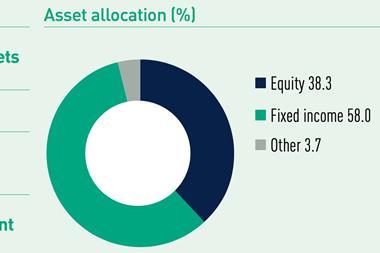The manager of Norway’s NOK15.5trn (€1.3trn) sovereign wealth fund said it has sharpened its climate expectations of the companies it invests in, urging them to move from the disclosures and target-setting stage to taking action.
Norges Bank Investment Management (NBIM) also said firms should reduce their own greenhouse gas (GHG) emissions rather than use voluntary carbon credits.
The central bank subsidiary cited this summer’s record high temperatures as evidence that the effects of climate change were increasingly hitting economies and companies around the world.
“Climate risk is financial risk,” NBIM said, adding that the solutions to climate change provided financial opportunities.
NBIM, which manages the Government Pension Fund Global, on Friday published its updated expectations to companies on climate in the form of a new expectation document.
It contains six core expectations on climate risks and opportunities applying to all companies which NBIM says will directly inform its voting decisions, and give more direction on good practices it wants businesses to adopt.
Carine Smith Ihenacho, NBIM’s chief governance and compliance officer, said: “With the effects of climate change becoming more evident, we really saw the need to sharpen our expectations.
“We look forward to having even more valuable engagements with companies and their boards on this important topic,” she said, adding that the core expectations set out would be particularly useful in NBIM’s talks with boards.
Tim Smith, lead investment stewardship manager at NBIM, said: “Many companies now need to move on from disclosures and target setting to the execution phase. They need to show investors credible transition plans and explain how they will ensure delivery.”
The six core expectations come under the headings of board oversight; climate risk disclosures; greenhouse gas reporting; net zero 2050; interim targets, and transition plans.
The organisation also published its view on corporate use of voluntary carbon credits, saying it believed firms should prioritise reducing their own emissions, but can use additional and verified credits as a supplement – to signal high climate ambitions.
“We don’t think carbon credits should be counted towards science-based interim emission reduction targets, and we want companies to be transparent about the details of credits they use,” NBIM said.
The SWF manager added that ultimately, carbon removals would be needed by many companies seeking to achieve net zero emissions by 2050.
Separately, NBIM revealed it told the Financial Reporting Council – in a response to the panel’s consultation on the revision of the UK Corporate Governance code – that it should not remove the reference to the gender diversity of company boards in the code.
In the letter to the FRC, signed by Smith Ihenacho and Elisa Cencig, senior ESG policy adviser, NBIM said: “We support the reference to ‘diversity and inclusion’ on corporate boards and the decision to move away from a list of diversity characteristics, aiming to capture wider diversity characteristics.
“However, we encourage the FRC to maintain a specific reference to gender [to] continue making progress on this issue,” the pair wrote.
Read the digital edition of IPE’s latest magazine























